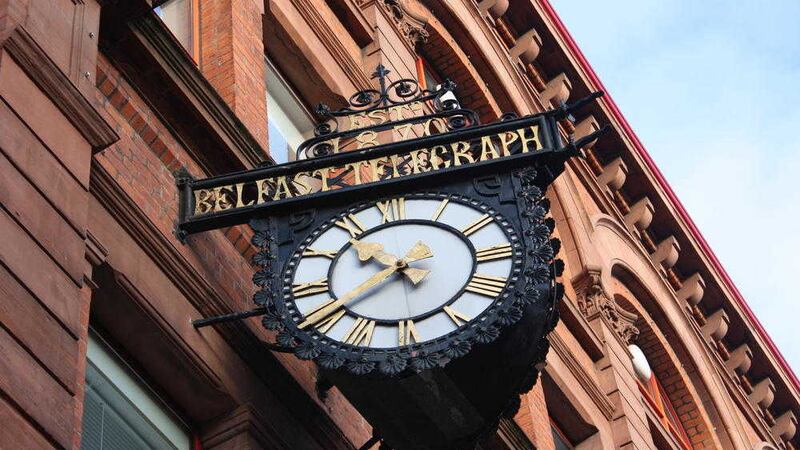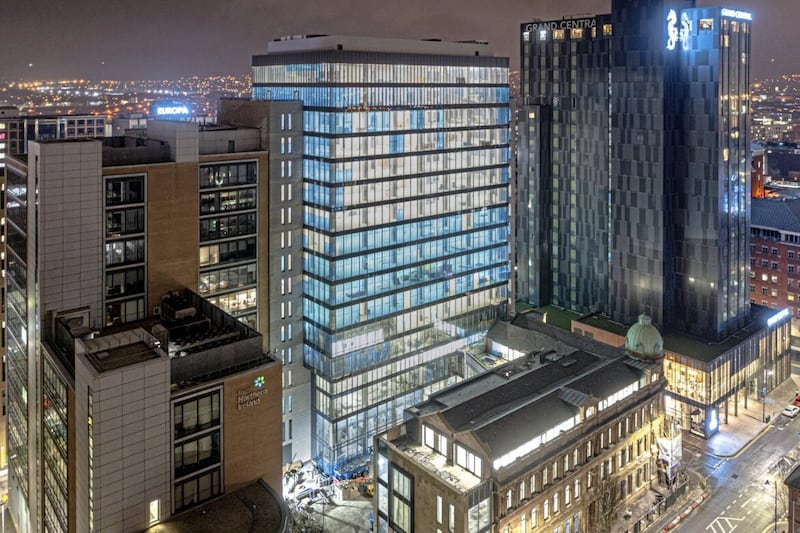IT'S perhaps a sign of just how far Northern Ireland’s ever-growing tourism sector has come that terms such as ‘golf tourism’ have taken up residence in business vernacular.
Ten years ago, the idea that our economy could be boosted to the tune of tens of millions of pounds through the hosting of a major international sporting event would have been considered overly ambitious at best – and folly at worst.
Indeed, those of a certain generation will tell you that, not much more than 20 years ago, the notion that tourism of any kind would become a cornerstone of the Northern Ireland economy would have been simply unthinkable.
Thankfully, though, that’s very much where we are right now. Visitor attractions such as Titanic Belfast have earned world-class credentials and we have feasted on an annual diet of hosting big-ticket global events, from the MTV Europe Music Awards to the Giro d’Italia.
Fed by the increased demand for hotel beds which this influx of tourists has created, the hotel sector in Northern Ireland – and Belfast in particular – has enjoyed a huge rise in activity. Recent figures show that nine hotel transactions in 2015 have totalled almost £70 million, and there are plans to add around 1,200 new bedrooms to Belfast’s hotel portfolio.
It’s been reported recently that Belfast’s Scottish Mutual building, Windsor House and Lagan House are set to be converted by local hoteliers to provide high-quality accommodation.
Meanwhile, as the selling agent for one of the most iconic city centre landmarks – the Royal Avenue building currently home to the Belfast Telegraph – we are seeing first-hand the interest from developers in converting the news rooms and printing presses into a range of uses including high-end hotel space.
Amidst the positivity, however, it must be noted that there is still a major imbalance in our tourism sector, with a significant over-reliance on leisure rather than business customers. Those booking a city break or holiday can afford to shop around and get the best deal, whereas business users tend not to have a choice and have to go where the work is.
Leisure users are price-sensitive, but business users are less so - meaning that, while demand for our hotels is high, the prices are not as high as one might expect, given overall bedroom
occupancy rates. However, there are a couple of potential game changers in this regard on the horizon.
The £30 million expansion of the Belfast Waterfront Exhibition and Conference Centre, set to open next May, could play a pivotal role in addressing the imbalance by attracting more business tourists. This will significantly shift the dynamics of the marketplace.
One of the Waterfront’s most significant bookings is the three-day Routes Europe conference in April 2017, which will see a gathering of over 1,200 representatives from the world’s most influential airlines, airports and tourism authorities.
History suggests that major new route announcements often closely follow in the conference’s host cities – and it cannot be over-stressed how much of a lift our tourism sector would receive by a regular business flights between Belfast and a city such as Munich or Berlin, in addition to the Brussels route from Belfast City Airport already announced for next year.
To return to a consideration of the strides our local tourism sector has made in recent years, it’s worth considering projections for growth over the next five years. Between now and 2020, the total number of hotel rooms in Belfast is likely to have risen to over 4,500 – but this is still expected to result in demand outstripping supply by 1,000 rooms.
It remains to be seen if such projections prove true. They may not if the current momentum is maintained.
:: Declan Flynn is managing director of Belfast-based commercial property agency Lisney, which works on behalf of many of Northern Ireland's most significant investors and developers as well as major retailers and businesses.







